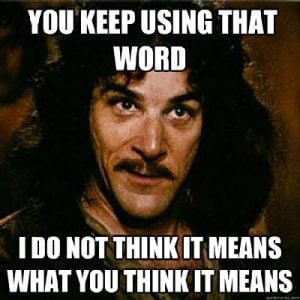
Browsing the latest cryptocurrency projects, it would be easy to conclude that decentralization is a panacea; a cure for humanity’s financial woes. It must be, surely, given that it’s a key tenet of every other new cryptocurrency and ICO. Without the gospel of decentralization, there would be no point in launching a blockchain version of Uber/Facebook/Airbnb or whatever web 2.0 platform is due for tokenization this week. Censorship-resistance is now reason enough to place a product on the blockchain it seems – even if that product has never been censored in the history of mankind.
Also read: Most Cryptocurrencies Are More Centralized Than You Think
Crypto Startups Are Craving the D
It’s hard to say when the decentralization meme kicked in. Like all trends, it occurred gradually; insidiously. It wasn’t in Satoshi’s white paper, that’s for sure. Words such as “decentralize” and “censorship” don’t get a mention. The first use of the term in regards to cryptocurrency appears to have occured on the Bitcointalk forum in February 2010. In response to a post from Satoshi announcing the first automatic adjustment of the proof-of-work difficulty, forum member Sabunir replied: “How do you adjust this difficulty, anyway? (Administrating a decentralized system?)”
Eight years later and decentralization is the prefix for all things crypto. It’s a word so powerful that simply uttering it is justification enough for seeking $20 million in a crowdsale. The magic word may not have appeared in Satoshi’s white paper, but it has become a defining trait of cryptocurrencies…or at least it has to the ones that do more than pay lip service to the concept. It’s no coincidence that one of the most heated recurring arguments in the cryptoverse concerns the extent to which major cryptocurrencies are centralized.
 Centralization is a dirty word around these parts, synonymous as it is with bankers, governments, control, and censorship. What’s the point in creating an IoT cryptocurrency with its own Direct Acyclic Graph if it’s reliant on a central coordinator? Or a Chinese smart contract blockchain that can be shut down by a kill switch? That doesn’t sound very true to the spirit of cryptocurrency, with all its promises of sidestepping oppressive regimes and facilitating peer-to-peer transactions. Put it this way: if bitcoin came with an off button or was mined by a single entity, shutting down darknet markets would have been a lot quicker and easier.
Centralization is a dirty word around these parts, synonymous as it is with bankers, governments, control, and censorship. What’s the point in creating an IoT cryptocurrency with its own Direct Acyclic Graph if it’s reliant on a central coordinator? Or a Chinese smart contract blockchain that can be shut down by a kill switch? That doesn’t sound very true to the spirit of cryptocurrency, with all its promises of sidestepping oppressive regimes and facilitating peer-to-peer transactions. Put it this way: if bitcoin came with an off button or was mined by a single entity, shutting down darknet markets would have been a lot quicker and easier.
The State of Decentralization Today
The crypto space has come a long way since the dark web days of 2013, and while the need for censorship-resistant currency and platforms is as important as ever, many ICOs seem to be missing the point. If a token is reliant on the project’s founders staying alive or continuing to pay for their web hosting, it’s not decentralized. A truly decentralized cryptocurrency is one that ideally has as many nodes and validators as possible and which will continue to be usable come what may; subpoenas; death; hacks; schisms.
 Of the 200-odd ICOs scheduled to take place in the coming weeks, there are some interesting “decentralized” projects to look forward to. Shopin, for example, is “the world’s first decentralized shopper profile built on the blockchain”. There’s also a decentralized lending and borrowing network (Datarius), video platform (Viewly), business data network (Loyakk Vega), and Git hosting (Ellcrys). Not all crowdsales claim decentralization as their USP in fairness. Cryptoflix, for example, aims to become a movie streaming and funding platform on the blockchain. Crypto and chill, anyone?
Of the 200-odd ICOs scheduled to take place in the coming weeks, there are some interesting “decentralized” projects to look forward to. Shopin, for example, is “the world’s first decentralized shopper profile built on the blockchain”. There’s also a decentralized lending and borrowing network (Datarius), video platform (Viewly), business data network (Loyakk Vega), and Git hosting (Ellcrys). Not all crowdsales claim decentralization as their USP in fairness. Cryptoflix, for example, aims to become a movie streaming and funding platform on the blockchain. Crypto and chill, anyone?
Decentralization isn’t the be all and end all of crypto. Many tokenized projects make no mention of it in their official documentation. Any ICO that does trade on the D-word, however, deserves close scrutiny to see whether it has any intention of making good on its promise. Talking about decentralization is easy. Delivering it is hard work.
Do you think decentralization matters? Let us know in the comments section below.
Images courtesy of Shutterstock.
Need to calculate your bitcoin holdings? Check our tools section.
The post Talking About Decentralization Is Easy – Achieving It Is Hard appeared first on Bitcoin News.
via Kai Sedgwick
0 comments:
Post a Comment